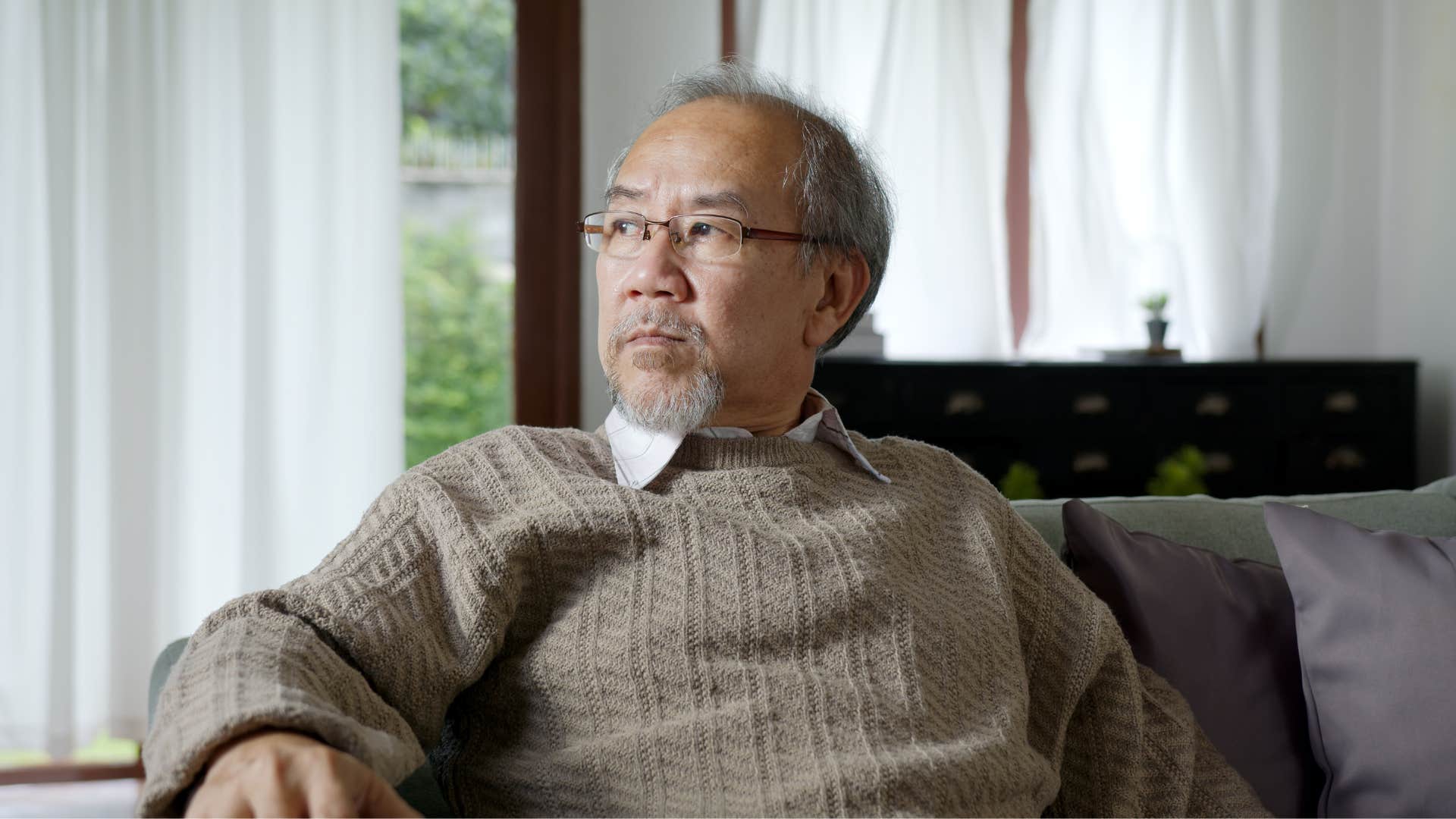9 Draining Habits People Who Never Feel Fully Rested Can't Seem To Shake
Every day feels like starting an old car with a corroded battery connection.
 Akos Nagy / Shutterstock
Akos Nagy / Shutterstock Some people sleep for eight hours, drink water, and even take breaks, but still walk around feeling like they’ve just run a marathon. The culprit isn’t always obvious, because it’s often not physical exhaustion, but a mental, emotional, and habitual drain.
The things draining your energy the most are usually what you’ve been doing for so long that it feels normal. Over time, these patterns create a kind of background fatigue that doesn’t go away with naps or vacations. The more you ignore it, the more it accumulates into burnout. If you often wake up tired, feel depleted by midday, or wonder why rest never feels restful, these habits might be the reason.
Here are 9 draining habits people who never feel fully rested can't seem to shake
1. Constantly rehearsing conversations
 fizkes via Shutterstock
fizkes via Shutterstock
Whether it’s a future confrontation or something that already happened, your brain won’t stop running the tape. You think it helps you feel prepared or in control, but all it does is keep your nervous system on high alert.
Mentally defending yourself, predicting someone’s reaction, or perfecting what you should have said tricks your mind into believing you’re still in the moment. That emotional looping is a hidden energy leak, and it’s exhausting even when you’re standing still.
2. Saying yes even when you mean no
 Prostock-studio via Shutterstock
Prostock-studio via Shutterstock
You agree to things you don’t want to do just to avoid guilt, conflict, or letting someone down. It sounds harmless in the moment, but every time you override your own needs, it adds weight to your day.
You end up doing things out of obligation instead of alignment, which leads to quiet resentment and constant emotional fatigue. People-pleasing might keep the peace on the outside, but it steals your peace on the inside.
3. Refusing to slow down until you’ve earned a rest
 Ground Picture via Shutterstock
Ground Picture via Shutterstock
You tell yourself rest comes after productivity, even if your body and mind are screaming for a break. This mindset turns life into a competition you will never win. There’s always something else to do, someone else to help, or some way you should be better.
And so, you delay rest in pursuit of a finish line that never comes. Eventually, your body stops asking and just starts shutting down in little ways because it knows you won’t listen until you have to.
4. Replaying mistakes over and over again
 Drazen Zigic via Shutterstock
Drazen Zigic via Shutterstock
You relive that one awkward comment, the misstep at work, or the words you wish you hadn’t said, as if punishing yourself will fix it. But beating yourself up doesn’t prevent future mistakes. It just robs you of energy you could use to move forward.
Holding onto guilt or shame drains your confidence and your capacity to feel peace. Forgiveness, especially toward yourself, is one of the fastest ways to reclaim emotional rest.
5. Taking responsibility for everyone else’s emotions
 PeopleImages.com - Yuri A via Shutterstock
PeopleImages.com - Yuri A via Shutterstock
You feel responsible for making sure everyone around you is OK, even when no one asked you to. You absorb moods, smooth over tension, and make it your job to keep the emotional atmosphere stable.
Over time, this turns you into a sponge, soaking up stress that doesn’t belong to you. It’s noble in theory, but in practice, it leads to emotional depletion that feels like unexplained tiredness you can’t shake.
6. Always needing to be on
 fizkes via Shutterstock
fizkes via Shutterstock
You perform. You smile. You make conversation even when you're drained, because that’s just who people expect you to be. Living like this means you rarely have space to just be.
You stay in performative mode so much that even your downtime feels like a role to play. And the longer you go without dropping that mask, the harder it is to recharge because you’re never truly off-duty, even when you’re alone.
7. Trying to think your way through every feeling
 Chay_Tee via Shutterstock
Chay_Tee via Shutterstock
You analyze, overanalyze, and try to logic your way out of every emotion that makes you uncomfortable. This habit keeps you stuck in your head and disconnected from your body, where most emotional healing actually begins.
You burn mental energy trying to explain or fix feelings instead of just feeling them. Ironically, it takes more energy to suppress emotion than to let it move through you, so this mental detour just keeps you tired.
8. Skipping joy because it doesn’t feel productive
 Krakenimages.com via Shutterstock
Krakenimages.com via Shutterstock
You delay fun until everything important is done, but everything can never actually get done. When joy gets treated like a luxury instead of a necessity, your life starts to feel like a to-do list with no reward.
Over time, that lack of lightness becomes its own kind of fatigue. Things like laughter, play, and creativity restore you. Skipping them means you’re constantly running on a half-empty tank.
9. Living in a state of low-level anxiety all the time
 Antonio Guillem via Shutterstock
Antonio Guillem via Shutterstock
You may not even call it anxiety. It’s just a constant hum of tension, a tight chest, or the feeling you forgot something. This kind of ambient stress is incredibly draining, especially because it’s so normalized. You get used to being on alert, but your body never fully relaxes. And that chronic tension eats up your energy, quietly, every single day.
You might sleep, but you never feel deeply rested because your nervous system never gets the memo that it’s safe to let go. You need fewer things stealing your peace behind the scenes, not a new routine that will just get you even more worn out. Letting go of just one of these habits can give your mind and body room to finally exhale.
Sloane Bradshaw is a writer and essayist who frequently contributes to YourTango.

